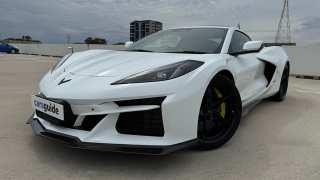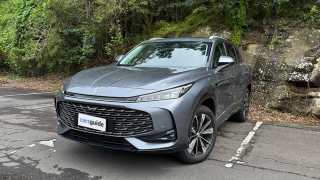
What is Australia's car future
- Toyota Camry
- Nissan Pulsar
- Toyota Aurion
- Nissan Pulsar 2013
- Toyota Camry 2012
- Toyota Aurion 2012
- Ford News
- Holden News
- Mitsubishi News
- Nissan News
- Toyota News
- Ford Hatchback Range
- Ford Sedan Range
- Holden Hatchback Range
- Holden Sedan Range
- Mitsubishi Hatchback Range
- Mitsubishi Sedan Range
- Nissan Hatchback Range
- Nissan Sedan Range
- Toyota Hatchback Range
- Toyota Sedan Range
- Hatchback
- Sedan
- Ford
- Holden
- Mitsubishi
- Nissan
- Toyota

The $19,990 bottom line for the upcoming Nissan Pulsar is exactly the same showroom sticker the car wore in 1996. If you think about inflation through that time - if you need a reminder, just take a look at the pump numbers rolling around the next time you're at the bowser - and all the extra equipment that now runs to standard aircon, electric windows and the rest, that's a mighty fine bottom line.
But the same time hasn't been as kind to Australia's local carmakers. Ford, Holden and Toyota have all been badly hit by sagging demand for their local heroes, raising doubts about the same fatal flaws that forced Nissan and Mitsubishi to close their local operations.
There have already been significant job losses during 2012, with Ford and Holden only committed to their production lines until the end of 2016 and Toyota also looking for a better business plan beyond the life of the current Aurion and Camry.
There is a lot of backroom work going into cementing a future for the local makers and, even more importantly, the component makers who rely on them to provide the business foundations that keep thousands of people in jobs and new technology flowing into Australia. Holden chief Mike Devereux went public - again - with his concerns this week.
It's easy to think that he's just rattling the begging bowl again and that the cash cow in Canberra has been milked dry by an industry that does not deserve to survive. Why should we be paying giant subsidies to an inefficient industry? But I know, after talking to Devereux's opposite numbers at Ford and Toyota, that his concerns are real. If these companies are going to remain in Australia for the long term, their parents in the USA and Japan expect co-investment cheques from the government.
After all, do we really think that Thailand became the assembly line for Asia - with factories churning out Toyotas and Fords, Nissans and Hondas and Holdens - without significant government support? Devereux is calling for both sides of Federal politics to declare their policy for the motor industry so voters can consider their position ahead of next years election.
"I believe 2013 will be the year that Australian decides whether it wants an auto industry or not," Devereux says bluntly. "I just want to sell cars, I don't want to be part of the political debate in this country. "(But) I need to understand very clearly, in a forward looking sense, what each party's policy is on auto manufacturing. Are they committed to making things in this country?"
All the numbers say that manufacturing cars makes no sense. But if we send Ford, Holden and Toyota packing by refusing to support their businesses, Australia looks more and more like nothing more than a giant hole in the ground that's only good for supplying raw materials to China. Where, incidentally, they're preparing the next wave of cheap imported cars for Australia.










Comments